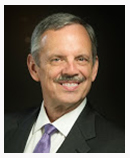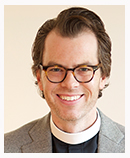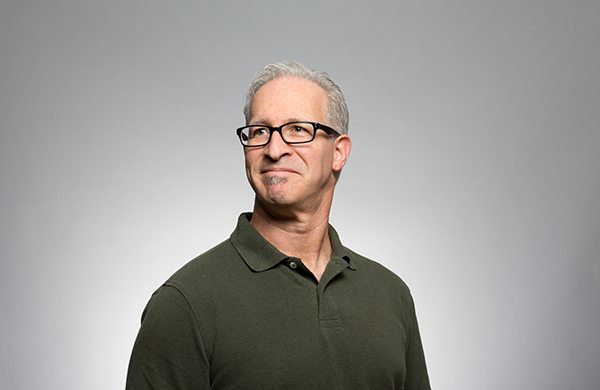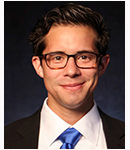This week our Millennial Round Table show is hosted by Dr. Nick Pitts. He is joined by co-host Kerby Anderson, Rev. Ryan Waller, assistant rector at Church of the Incarnation in Dallas, and Grant Skeldon, director of Initiative Network. Together they will talk about issues that the millennial generation face, faith, theology, and politics.

He graduated from Oregon State University and holds masters degrees from Yale University (science) and Georgetown University (government). He is the author of thirteen books including Signs of Warning Signs of Hope, Moral Dilemmas, Christian Ethics in Plain Language, A Biblical Point of View on Islam, A Biblical Point of View on Homosexuality, A Biblical Point of View on Intelligent Design, A Biblical Point of View on Spiritual Warfare, and Making The Most of Your Money in Tough Times. He is also the editor of many books including: Marriage, Family, & Sexuality and Technology, Spirituality, & Social Trends.
Kerby also serves as a visiting professor at Dallas Theological Seminary, Philadelphia Biblical University, and Temple Baptist Seminary. He has spoken on dozens of university campuses including University of Michigan, Vanderbilt University, Princeton University, Johns Hopkins University, University of Colorado and University of Texas.
Kerby is married and the father of three children. He and his wife Susanne reside in Plano, Texas.

After a brief career in the law Ryan felt called by God to teach and preach. He spent three years at All Saints’ Episcopal School before being led to the Church of the Incarnation.
He is married to Caroline Waller and has two sons, Ford Casey and Charles Henry. Ryan is passionate about sharing the Good News of Jesus Christ through imaginative preaching and is honored to serve as the pastoral leader of the Uptown Services.

Initiative has impacted thousands of young leaders from over 540 different churches across the metroplex. Grant has traveled the globe speaking to over 45,000 pastors, parents, and business leaders on the topic of engaging and empowering millennials. He is currently writing a book that will be published by Zondervan in 2018.
Grant serves on the advisory boards for Harvest America in Dallas and Movement Day Greater Dallas. He is currently a student at Dallas Baptist University. He attends and leads a small group at Mercy Street Church, a multicultural, urban church plant in West Dallas.

There is the slovenly “I don’t care what you think” manliness of Steve Bannon. There’s the look-at-me-I-can-curse manliness that Anthony Scaramucci learned from “Glengarry Glen Ross.” There is the affirmation-hungry “I long to be the man my father was” parody of manliness performed by Donald Trump. There are all those authentically manly Marine generals Trump hires to supplement his own. There’s Trump’s man-crush on Vladimir Putin and the firing of insufficiently manly Reince Priebus.
With this crowd, it’s man-craving all the way down.

Kids who were raised without a dad have much shorter telomeres, the protective caps at the ends of chromosomes that are believed to affect health and longevity, than kids with fathers in the home, Deseret News reported Tuesday.
The research was done among the approximately 5,000 children who were born between 1998 and 2000 and who are part of the federally-funded Fragile Families and Child Wellbeing Study. The study was published in the journal "Pediatrics."
For those children whose fathers either died or were incarcerated before they were 5 years old, the effects on their telomeres were most pronounced. Father loss negatively impacted the telomeres of boys 40 percent more than it did on the telomeres of girls

“The youth and the older persons in this room have wisdom, experience, energy and ideals,” the UN chief said in his video message to a special event at UN Headquarters, “Intergenerational Dialogues on the Sustainable Development Goals,” which was also addressed by his newly-appointed Envoy on Youth, Jayathma Wickramanayake, and the President of the General Assembly, Peter Thomson.
“Together, you can help break cycles of poverty that have lasted for generations – and trigger transformational change that endures for generations to come,” Mr. Guterres stressed.

Today, half of American pastors are older than 55. In 1992, less than a quarter of pastors in the U.S. (24 percent) were that old.
Pastors 65 and older have almost tripled in the last 25 years, from 6 percent to 17 percent.
Meanwhile, pastors 40 and younger have fallen from 33 percent in 1992 to 15 percent today.
In 1992, the median age for a Protestant pastor in America was 44. In 2017, it has climbed 10 years to 54.
The graying of the American pastorate did not start in the 1990s, however. More than half of all Protestant clergy (55 percent) were younger than 45 in 1968. This year, only 22 percent of pastors are under 45.
 Listen Online
Listen Online Watch Online
Watch Online Find a Station in Your Area
Find a Station in Your Area


 Watch Now
Watch Now Listen Now
Listen Now 







 Listen Now
Listen Now Watch Online
Watch Online
